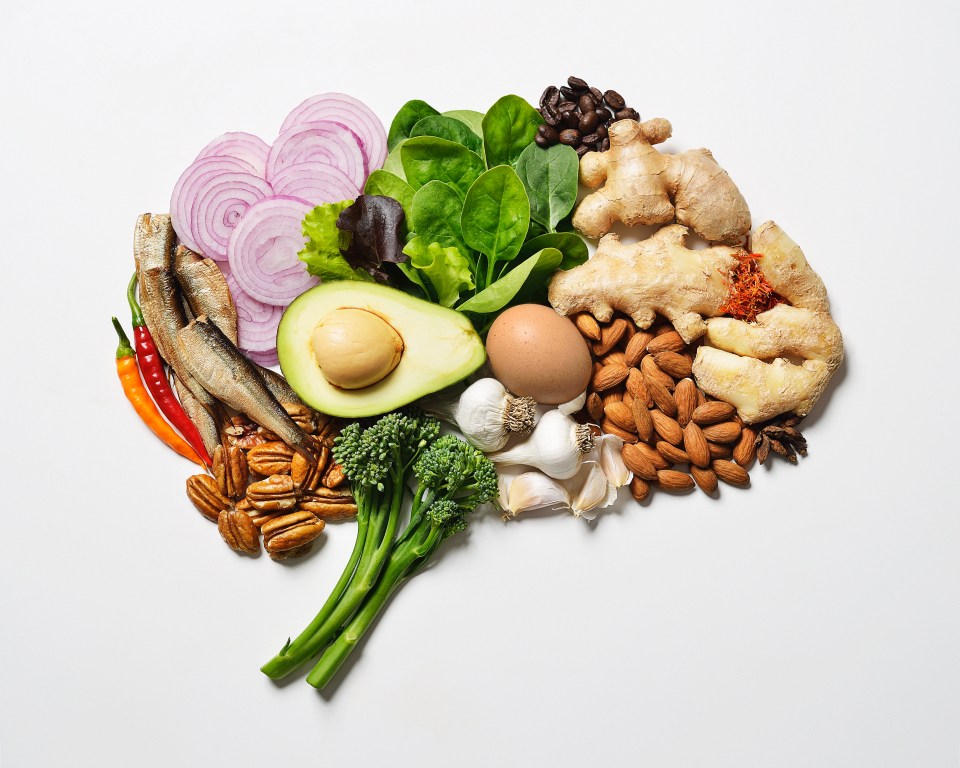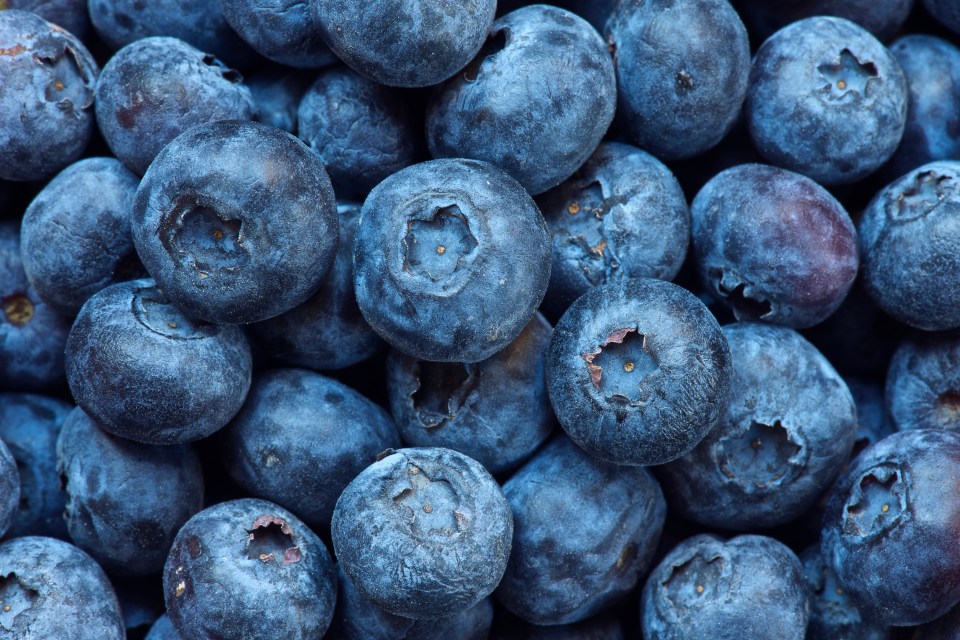Sun Health Explainer: Understanding Dementia and Alzheimer’s Disease

By the year 2040, it is projected that 1.4 million individuals will be living with dementia, a significant rise from the current estimate of approximately 982,000, as reported by the Alzheimer’s Society. This alarming increase highlights the urgent need for awareness and preventative measures.
Dementia is a complex condition influenced by both genetic predispositions and lifestyle factors. While genetics and age are critical risk factors, our daily habits, particularly our dietary choices, play a significant role in determining our likelihood of developing this debilitating disease. Recent research published in the journal BMC Medicine indicates that adhering to a Mediterranean diet—which emphasizes whole grains, fruits, vegetables, seafood, legumes, nuts, and healthy fats—can reduce the risk of dementia by up to 23%. Experts have also identified specific brain-boosting foods that can enhance cognitive health.
Fortunately, you don’t need to spend a fortune on specialty health foods to incorporate these beneficial items into your diet.
The 50p Brain-Booster

Next time you visit the supermarket, don’t overlook the canned food aisle. A tin of sardines costs just 50p at Tesco and is loaded with omega-3 fatty acids, particularly docosahexaenoic acid (DHA) and eicosapentaenoic acid (EPA). According to Nichola Ludlam-Raine, a registered dietitian and author of How Not To Eat Ultra Processed, “These fats are vital for brain function and overall cognitive health.”
She explains, “DHA constitutes about 25% of the brain’s fat content and is essential for memory, learning, and decreasing inflammation. Meanwhile, EPA provides anti-inflammatory benefits that help safeguard brain cells and lower the risk of neurodegenerative diseases like dementia.”
Research published in the Journal of Neuroscience Nursing indicates that excessive inflammation in the body—triggered by environmental toxins, chronic stress, alcohol consumption, and obesity—can elevate the likelihood of dementia. Nutritionist and biochemist Tim Gaunt notes that “chronic inflammation can lead the immune system into overdrive, contributing to the emergence and progression of serious diseases.” Therefore, including sardines in your diet can be a simple yet effective strategy to mitigate these risks.
In addition to omega-3s, sardines are a good source of coenzyme Q10, which is crucial for energy production and can also be found in organ meats like kidneys and livers, as well as various whole grains. If you follow a vegan or vegetarian diet, consider incorporating nuts, flaxseeds, chia seeds, and seaweed, all of which are rich in omega-3 fatty acids. Alternatively, omega-3 supplements can be beneficial for those who do not consume oily fish, though they should complement a well-rounded diet rather than replace it.
Other Brain-Boosting Foods

1. Blueberries

Small yet powerful, blueberries are packed with antioxidants, particularly anthocyanins, which may help protect your brain. “Anthocyanins can reduce oxidative stress and inflammation within the brain,” says Nichola. “Studies indicate they can enhance memory, slow cognitive decline, and even facilitate communication between brain cells.”
A study published in the Journal of Agricultural and Food Chemistry found that supplementing the diet with blueberry juice equivalent to half a cup of blueberries for 12 weeks significantly improved memory function in older adults experiencing early memory decline. Consider adding blueberries to your morning cereal, blending them into smoothies, or enjoying them as a healthy snack. A 350g bag of frozen blueberries from Asda retails for £1.98.
2. Spinach
Leafy greens are an effortless way to boost your daily nutrient intake. “They are rich in folate, vitamin K, and antioxidants,” explains Nichola. “Folate supports neurotransmitter function and has been associated with a decreased risk of cognitive decline, while vitamin K plays a role in safeguarding brain cells and may help prevent Alzheimer’s disease.”
Research published in the journal Neurology indicates that consuming just one serving of leafy greens daily can slow age-related cognitive decline. Vegetables like spinach, kale, and lettuce were included in the study, with half a cup of cooked spinach or one cup of raw lettuce counting as a single serving. These greens, available in Morrisons for under £2, provide vitamin E and selenium, which further protect brain cells from damage and inflammation.
3. Walnuts

Walnuts, intriguingly shaped like a brain, are touted as the best nuts for cognitive health. “They contain alpha-linolenic acid (ALA), a plant-based omega-3, along with polyphenols that reduce inflammation and enhance brain neuroplasticity,” says Nichola. Neuroplasticity refers to the brain’s ability to adapt structurally and functionally.
A study published in the journal Nutrients in 2020 revealed that consuming between 12 and 18 walnut halves is linked to improved cognitive function and a reduced risk of various diseases, including cardiovascular disease, depression, and type 2 diabetes—all of which are risk factors for dementia. A bag of walnut halves is available for £2 in Sainsbury’s.
4. Eggs
Starting your day with eggs might be a simple yet effective strategy for a healthier brain. A study published in the Journal of Nutrition found that older adults consuming more than one egg per week experienced a 47% reduced risk of dementia compared to those eating fewer than one egg weekly. This benefit is attributed to choline, a nutrient found in eggs, which is crucial for memory and cognitive function.
“Choline is necessary for producing acetylcholine, a neurotransmitter involved in learning and memory,” says Nichola. “Additionally, eggs are rich in B vitamins, which further support brain health.” You can find eggs in Aldi for as little as 18p each.
5. Dark Chocolate
If you’re craving something sweet, dark chocolate with at least 70% cocoa content is a delightful choice. Nichola notes that it contains flavonoids, which enhance blood flow to the brain, thereby improving focus and memory. Research indicates that consuming six additional servings of flavonoid-rich foods daily is associated with a 28% lower risk of dementia.
While dark chocolate offers flavonoids, the study published in JAMA also included tea, red wine, and berries as beneficial foods. A bar of 70% dark chocolate from M&S costs £1.25, while a box of tea can be purchased for just £2.
Other Simple Ways to Reduce Your Risk of Dementia
As there is currently no cure for dementia, experts suggest focusing on preventative measures. Interestingly, a recent study has linked certain occupations to a lower risk of death from Alzheimer’s disease. Researchers from Mass General Brigham found that jobs requiring frequent spatial processing, such as taxi or ambulance driving, may help lower the risk of Alzheimer’s mortality. The study evaluated national data on the occupations of individuals who had passed away, revealing that those in these professions demonstrated lower rates of death from the disease.
“The same part of the brain responsible for creating cognitive spatial maps, which we use to navigate our surroundings, is also involved in the development of Alzheimer’s disease,” explains lead author Vishal Patel. “We hypothesized that occupations demanding real-time spatial and navigational processing might correlate with a reduced burden of Alzheimer’s disease mortality compared to other jobs.”
However, there are practical ways for everyone to lower their risk, including:
- Avoid binge-watching television shows
- Engage in crosswords or puzzles (with your non-dominant hand)
- Maintain an active social life
- Follow a Mediterranean diet
- Achieve and maintain a healthy weight
- Consider taking a multivitamin
- Enhance your intimate life
- Increase coffee consumption
- Take up dancing
- Utilize medications like Viagra if appropriate
- Go for daily walks
- Prioritize dental hygiene
- Have regular eye and hearing check-ups
- Ensure adequate sleep
You can learn more about each of these tips and their benefits.
Foods to Avoid

A diet rich in whole, nutrient-dense foods while minimizing ultra-processed foods (UPFs) can significantly enhance brain health, improve memory, and lower dementia risk. Nichola emphasizes that while UPFs don’t need to be entirely eliminated, an over-reliance on them can displace whole foods necessary for optimal health.
“Excessive consumption of ultra-processed foods can lead to increased inflammation, oxidative stress, and insulin resistance, all of which can negatively impact brain health,” she explains. “I recommend cutting back on sugary drinks and refined carbohydrates like white bread, candies, cookies, and sodas. Opt for wholemeal bread for added fiber, nuts for healthy fats, and sparkling water as a low-sugar alternative.”
Additionally, Nichola advises reducing intake of processed red meats such as hot dogs, bacon, and burgers. “Trans fats, found in some fast foods, can promote inflammation and elevate cholesterol levels, although the current levels of trans fats in the UK diet are generally deemed acceptable for most individuals.”